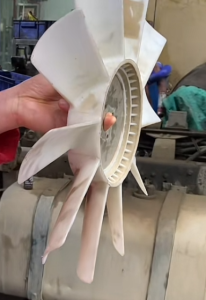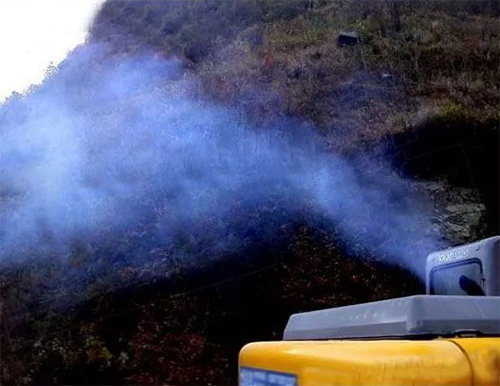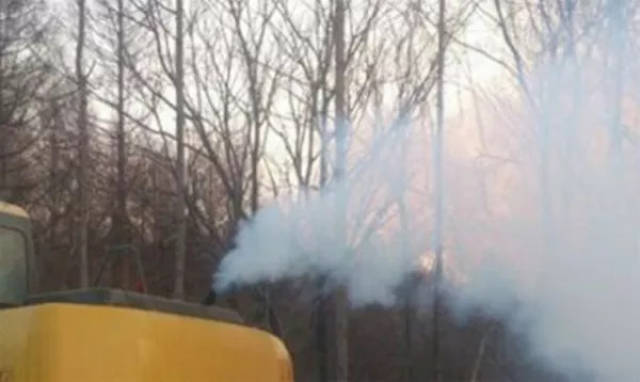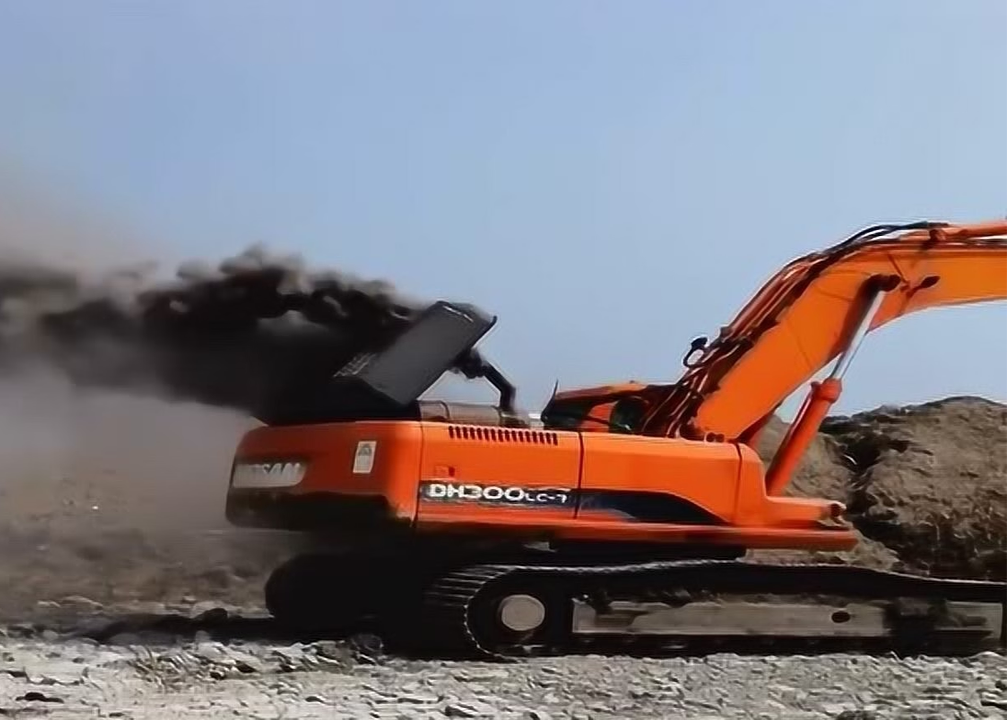The excavator is a highly integrated piece of machinery combining mechanics, electronics, and hydraulics. There are many reasons for high coolant temperature in the radiator. Simply increasing the airflow can temporarily alleviate the high temperature, but it is not a long-term solution. It is necessary to identify and address the root cause step by step.
Unlike other construction machinery, the engine of an excavator drives only one hydraulic pump, and all actions are performed hydraulically. Therefore, the causes of high temperature in an excavator are significantly different from those in other mechanically driven construction equipment, and they are more interconnected. Any malfunction in the mechanical, electrical, or hydraulic systems can lead to high temperatures. Thus, when high temperatures occur, it is essential to promptly diagnose and address the issue.

Increasing the number of fan blades can enhance airflow, or reducing the diameter of the pulleys can increase the fan speed, which can lower the temperature by 5-10°C. This situation is applicable when the excavator’s temperature is slightly high, and the water can operate for extended periods. For machines with a long service life that may not warrant a thorough inspection and repair, a temporary solution to reduce the temperature can be adopted.
The downside of this approach is that it may increase wind noise and slightly raise fuel consumption. However, to thoroughly restore the water temperature to normal levels, it is essential to investigate the causes from multiple aspects.
First, you can start with simple methods, such as cleaning the radiator and the hydraulic oil cooler. Excessive dust and oil residue on the cooling fins can reduce the cooling efficiency, so it’s a good idea to clean the outside of the radiator. If there is no improvement, remove the radiator cap and check the interior walls for scale buildup. If the radiator hasn’t been cleaned for many years, it is advisable to take it to a repair shop that can weld and thoroughly clean the scale from the walls of the cooling tubes.
Additionally, the sealing of the fan shroud at the back of the radiator should be checked to prevent excessive airflow loss, which can degrade the cooling effect. Any gaps in the fan shroud can be filled with appropriate materials.

Once it is confirmed that there are no issues with external cooling, the next step is to check for any faults in the engine. For example, look for bubbles or oil residue in the radiator to determine if the cylinder head gasket is damaged. Additionally, consider the engine power. A decrease in engine power can also lead to high temperatures due to overload.
Although the hydraulic pump can automatically adjust the flow to prevent engine overload, the adjustment range is limited. When the flow decreases, the overall speed of the machine reduces, and operators often compensate by increasing the throttle, creating a vicious cycle that exacerbates the high temperature. Therefore, it is important to check if the engine power is sufficient. For direct injection engines, check if the injectors are functioning properly. You can initially assess the injector’s performance at idle using the cylinder cutoff method and observe the exhaust color. Also, check the turbocharger for any damage and ensure that the bearing clearance is not excessive. For electronically controlled engines, you can directly use a computer for diagnostics.
After addressing any engine faults, you should then check the electronic control and hydraulic systems.

Mainly Check the Flow Control: Confined to controlling the power specifications of the hydraulic pump, the flow control is used to regulate the power output of the hydraulic pump. A computer will continuously adjust the power to achieve efficient operation throughout the engine. This ensures the engine is supplied with all necessary loads, thereby completely absorbing the engine power.
The heat generated by the engine: The heat generated by the engine comes from the emissions and intake pressure via the hydraulic system, requiring precise measurement and management. The heat generated from the cooling fan will also不会 rise if there are more leaks into the hydraulic modules (which leads to overheating expansion).
Fusion: Hoses and seals strongly affect engine reactive properties. If the hydraulic fluid temperature is too high, the fuel can Tiger poorly socio ecology or automation.
If there is a problem related to the flow control of the hydraulic pump, the pressure hitting the fuel could be greater than the engine power, and therefore heat exhaustion is inevitable.
Finally, it’s necessary to check the main parts and轴承 in order to avoid temperature rise caused by secretion.
Huge temperature is harmful to excavators. Therefore, many preventive measures are needed, such as cleaning intake and exhaust systems, inspecting fans, etc.










